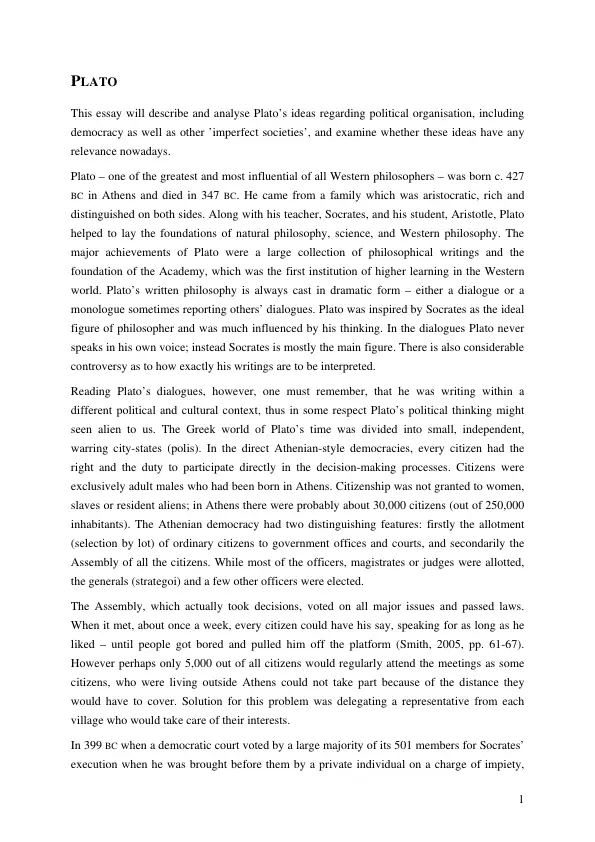Following a short overview of Plato’s life and the political situation of his time, this paper describes and analyses Plato’s ideas regarding political organisation, including aristocracy, timocracy, oligarchy, democracy and tyranny and further examines whether these ideas have any relevance nowadays. In addition, the paper touches on Plato’s ideas about the ideal state and his famous allegory of the cave. The paper concludes that, even if many Plato’s ideas seem very alien to us, some ideas, particularly the moral and spiritual dimension of political life, are still very relevant today.
You will find a text preview here soon.
Excerpt out of 7 pages
- scroll top
- Quote paper
- Linda Vuskane (Author), 2009, About Plato's ideas regarding political organisation, Munich, GRIN Verlag, https://www.grin.com/document/159842
Look inside the ebook


